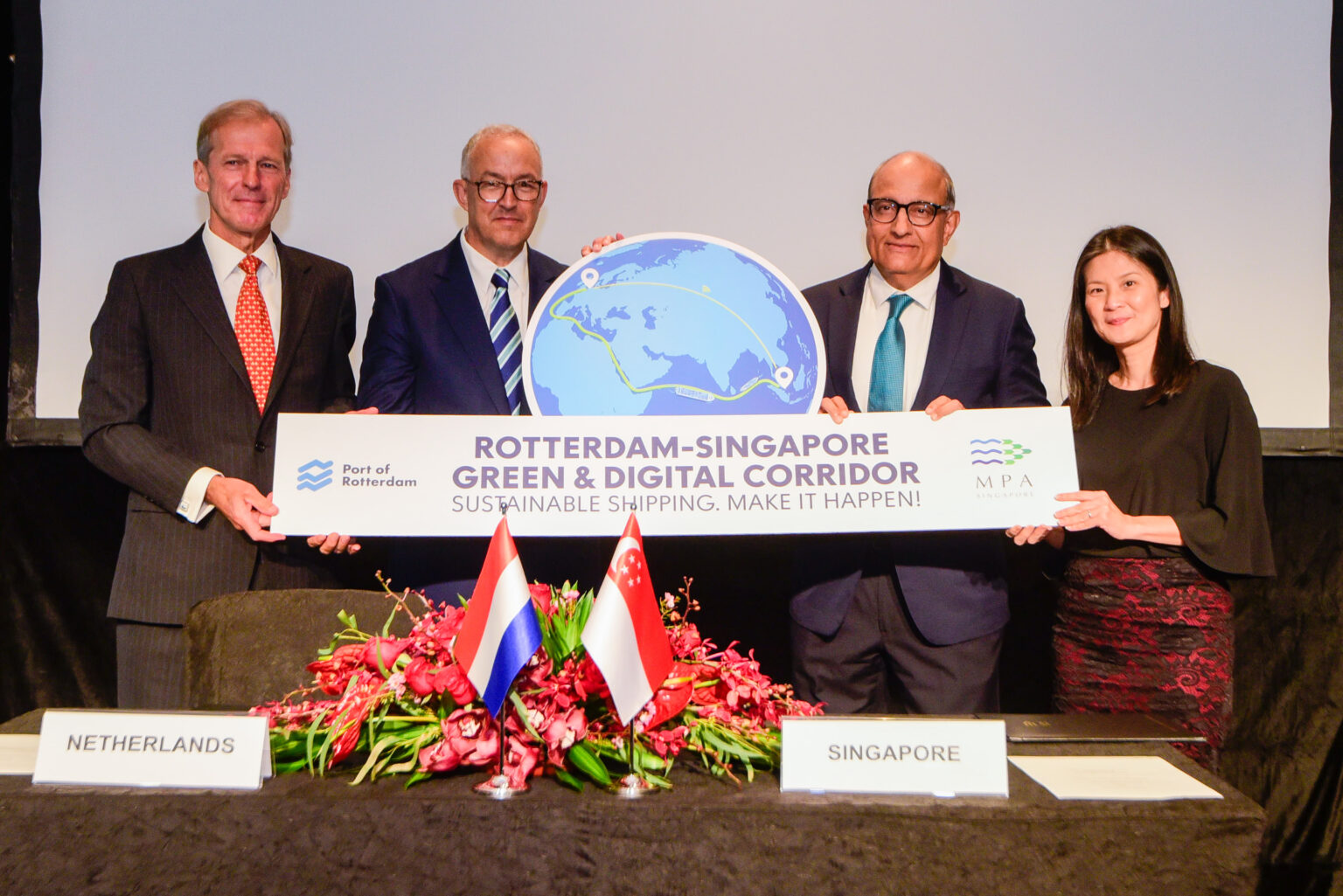

- Nieuws
-
Featured
-
Featured
- Recent
-
- Magazine
-
Featured
-
Featured
- Recent
-
- Kiosk
- Columns
- Bedrijveninfo
- Adverteren
Select Page

Foto: Havenbedrijf Rotterdam
Er moet een groene corridor komen tussen de havens van Rotterdam en Singapore. Dit hebben het Havenbedrijf Rotterdam en the Port Authority of Singapore afgesproken.
De havenbedrijven willen het gebruik van nieuwe brandstoffen stimuleren. Zeeschepen varen nu nog grotendeels op stookolie. Er zijn duurzame alternatieven beschikbaar, zoals biobrandstoffen, en er wordt gewerkt aan synthetische brandstoffen, waterstof, ammoniak en methanol. Aan alle alternatieven zitten echter nog haken en ogen, zoals de kosten, beschikbaarheid of energiedichtheid.
Een door de havenbedrijven opgerichte coalitie van verladers, brandstofleveranciers en andere bedrijven moet hiervoor oplossingen gaan bedenken. Er wordt samengewerkt met het Global Centre for Maritime Decarbonisation, Mærsk Mc-Kinney Møller Center for Zero-Carbon Shipping, BP, CMA CGM, de Digital Container Shipping Association, Maersk, MSC, Ocean Network Express , PSA en Shell. Gezamenlijk zal aan financiering worden gewerkt en zullen pilots worden gestart voor het bunkeren en gebruik van duurzame brandstoffen. Het doel is om in 2027 tot ‘de eerste duurzame scheepvaart’ op deze route te komen.
Ook hebben de Rotterdamse en Singaporese havenautoriteiten plannen om tot een digitale corridor te komen. Hierin worden veilig gegevens, standaarden en elektronische documentatie gedeeld. Dit maakt het transport tussen beide havens gemakkelijker en bevordert just-in-time-shipping.
Zie ook: Minder brandstofverbruik dankzij just-in-time aankomsten
A green corridor is to be created between the ports of Rotterdam and Singapore. This has been agreed by the Port of Rotterdam Authority and the Port Authority of Singapore.
The port companies want to stimulate the use of new fuels. Sea-going vessels still largely sail on fuel oil. Sustainable alternatives are available, such as biofuels, and work is being done on synthetic fuels, hydrogen, ammonia and methanol. However, all alternatives still have their drawbacks, such as cost, availability or energy density.
A coalition of shippers, fuel suppliers and other companies set up by the port companies must come up with solutions. It will work with the Global Centre for Maritime Decarbonisation, Mærsk Mc-Kinney Møller Center for Zero-Carbon Shipping, BP, CMA CGM, the Digital Container Shipping Association, Maersk, MSC, Ocean Network Express, PSA and Shell. Together they will work on financing and start pilots for bunkering and the use of sustainable fuels. The aim is to achieve ’the first sustainable shipping’ on this route by 2027.
The Rotterdam and Singapore port authorities also have plans to create a digital corridor. In this, data, standards and electronic documentation will be securely shared. This will make transport between the two ports easier and promote just-in-time shipping.